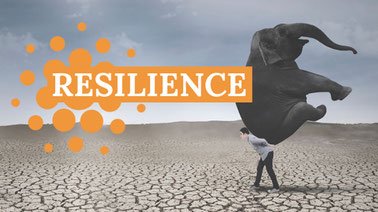This time, more than ever in recent history, has created exceptional changes for people all across the world. COVID-19 has brought about social, business, economic, travel, and even relationship changes on a level that is unprecedented in both scope and complexity.
Some individuals have done relatively well, some have thrived, and some have struggled. One factor that sets those that weather the storms from those that experience more difficulties is their resilience.
Understanding Resilience
Resilience is the ability to adapt and change to life situations in a positive way. It is sometimes described as the ability to “bounce back” after a difficult situation. Resilience is not pretending that something is not serious or difficult. Instead, it is the ability to recognize the problem or trauma and manage it in a way that prevents it from overshadowing or encapsulating your life.
Resilience is not an inherited genetic predisposition. Resilience is a way of managing situations that are often learned by moving through challenges and difficulties. People who have never experienced emotional distress, trauma, problems, or challenging circumstances tend to have limited resilience due to their lack of perspective on how to respond.
Developing Your Resilience
The ability to be resilient can be learned. In this way, resilience is like Emotional Intelligence. There is always the opportunity to make positive changes. Research into resilience identifies four key areas of personal growth to develop your ability to handle challenges. These four aspects include:
- Connection – developing a support network of people you know and trust and who have gone through challenges in their lives and grown through the process.
- Wellness – focusing on growth and learning about emotional and physical wellness as a part of personal development. People who follow self-care routines have higher levels of resilience and more effective coping strategies when stress, trauma, or difficulties occur.
- Purpose – finding a meaning in life helps to provide a grounding point and to keep things in focus and perspective. Helping others, practicing mindfulness and gratitude, as well as setting goals for yourself on a personal as well as professional level all creates growth and sets the foundation for resilience.
- Positive thinking – focusing on releasing negative self-talk and learning to identify irrational or unfounded thoughts about situations opens the way to a positive outlook even in a currently difficult situation. Coaching, counseling, and self-learning are all ways to overcome negative thoughts.
Building resilience is an active and not passive practice. Building resilience and personal growth into your goals is an effective way to keep growing, adapting to change, and bouncing back after life’s challenges.

